I'm developing a project that will require me to include credentials for things like an SMTP server. I'd like to store this information along with the complete details of the endpoint in an embedded JSON file, but I would like to have that information encrypted and then let my application decrypt it when it needs to establish a connection and log in. The JSON structure looks something like this:
{
"Endpoints" : [
{
"Endpoint" : {
"Host": "smtp.mydomain.tld",
"Port": 587,
"Username": "user@mydomain.tld",
"Password": "mYp@s$w0?d"
}
}
]
}
While what I'd really like to have actually stored in the file would look something like this:
{
"Endpoints" : [
{
"Endpoint" : "<BASE64_ENCODED_STRING>"
}
]
}
Using Newtonsoft's Json.NET, I've built the class object/properties to desriealize this structure:
<JsonProperty("Endpoints")>
Public Property Endpoints As List(Of EndpointContainer) = Nothing
Public Class EndpointContainer
<EditorBrowsable(EditorBrowsableState.Never)> <DebuggerBrowsable(DebuggerBrowsableState.Never)>
Private Const EncryptedPrefix As String = "myappcipher:"
<EditorBrowsable(EditorBrowsableState.Never)> <DebuggerBrowsable(DebuggerBrowsableState.Never)>
<JsonProperty("Endpoint")> <JsonConverter(GetType(EndpointProtector))>
Public Property Endpoint As Endpoint = Nothing
End Class
And I've built the inherited JsonConverter class ("EndpointProtector") like this:
Public Class EndpointProtector
Inherits JsonConverter
Public Sub New()
Using SHAEncryption = New SHA256Managed()
_EncryptionKey = SHAEncryption.ComputeHash(Encoding.UTF8.GetBytes(TestEncryptionKey))
End Using
End Sub
Public Overrides Sub WriteJson(writer As JsonWriter, value As Object, serializer As JsonSerializer)
Dim clearText As String = JsonConvert.SerializeObject(value)
If clearText Is Nothing Then
Throw New ArgumentNullException(NameOf(clearText))
End If
writer.WriteValue(EncryptEndpoint(clearText))
End Sub
Public Overrides Function ReadJson(reader As JsonReader, objectType As Type, existingValue As Object, serializer As JsonSerializer) As Object
Dim DecryptString As String = TryCast(reader.Value, String)
If String.IsNullOrEmpty(DecryptString) Then
Return reader.Value
ElseIf Not DecryptString.StartsWith(EncryptedPrefix, StringComparison.OrdinalIgnoreCase) Then
Return DecryptString
Else
Return DecryptEndpoint(DecryptString)
End If
End Function
Public Overrides Function CanConvert(objectType As Type) As Boolean
Throw New NotImplementedException()
End Function
End Class
Currently I have the JSON file itself with the full object definition (as in the first code block). When my application reads that JSON, it correctly moves to the overridden ReadJson() method I have, but the reader.Value is null (Nothing), so it never actually gets to the DecryptEndpoint() method. Of course, that means there's nothing to encrypt, so the application won't even step into the WriteJson() method.
I've tried a couple of variations, including making the Endpoint property into a private variable with a generic Object type, and then having a separate public property with the <JsonIgnore> decoration to "read" from that, but nothing seems to get me where I need to be. I'm sure I'm overlooking something here, but I can't seem to figure out why it's not getting anything at all.
I looked at a few other SO questions like Encrypt and JSON Serialize an object, but I've still not yet been able to figure out quite where I've gone wrong here.
NOTE: I intentionally didn't include the code for the EncryptEndpoint() or DecryptEndpoint() methods here simply because the code is never making it that far in the process. If you feel it's needed to fully answer the question, please let me know.
